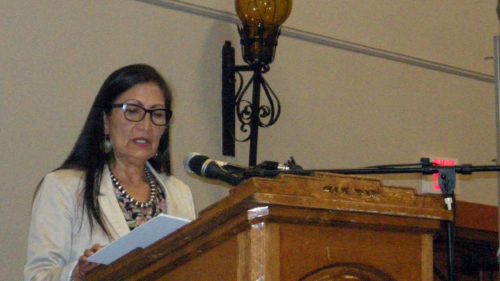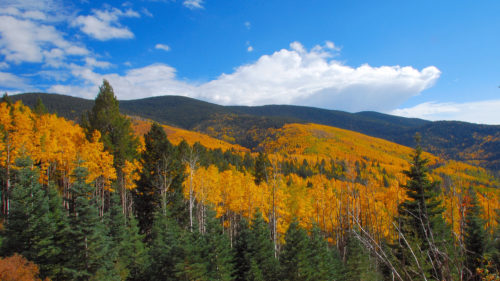SANTA FE — The New Mexico Wildlife Federation is urging its membership to support a bill pending in the state Legislature that would increase hunting and fishing license fees for the first time in over a decade.
Sen. Pete Campos, D-Las Vegas, is sponsoring the measure, SB-382.
“With the Department of Game and Fish, today there is an increased demand for hunting and fishing services, for the caretaking of game and the raising of fish,” Campos said this week in an interview with the NM Wildlife Federation.
Campos noted there’s a general push to emphasize New Mexico’s outdoor recreation economy for tourists and residents alike. He said the intent of his bill is to provide the necessary resources to the game department to help it continue to meet the demands of hunters and anglers over the long term.
“This is going to go ahead and also create a very significant need for the department to ensure that lakes are stocked and streams are stocked and that the wildlife continues to grow and live in a very health habitat,” Campos said of the emphasis on outdoor recreation. “So the resources will be used prudently for years to come to support the outdoors person who enjoys both hunting and fishing.”
The bill would raise nearly all base license fees. For example:
_ A resident fishing license would increase from $25 to $35.
_ A resident deer license would increase from $31 to $50.
_ Resident tags for antelope and cow elk would increase from $50 to $60.
_ A resident bull elk tag would increase from $80 to $90.
Nonresident base fees would increase also under the bill. For example:
_ A nonresident fishing license would increase from $56 to $60.
_ Nonresident deer and antelope tags would rise from $260 up to $375.
_ A nonresident cow elk would increase from $315 up to $425.
_ A nonresident bull elk tag would increase from $525 to $700.
_ A “quality elk” nonresident tag would increase from $750 to $900.
Michael B. Sloane, director of the New Mexico Department of Game and Fish, declined to comment this week on the bill, saying he can’t comment on pending legislation.
If the bill passes this year, the fee increases would go into effect beginning with licenses sold next year.
Sloane said the increases would bring in an additional estimated $6 million in 2020 and $6.9 million in 2021. The game department receives no state general fund money and finances its operations through license fees and federal funds.
According to a game department analysis of Campos’ bill, the proposed new license fees would be generally in line with existing fees in Arizona, Colorado, Idaho, Montana, Nevada, Utah and Wyoming.
John Crenshaw, president of the board of the New Mexico Wildlife Federation, said he sees the proposed fee increase as both fair and long overdue. He encouraged members to contact their legislators to support Campos’ bill.
“We sportsmen and women voted to tax ourselves to support professional wildlife management more than a century ago,” Crenshaw said. “We have some of the best hunting and fishing in the world as a result, and can be proud to keep that tradition alive.”
This coming license year will be the 14th year in which hunters and anglers have paid the same fees for hunting licenses. “That’s surely one of the longest, or among the longest, times between fee adjustments that we’ve enjoyed,” Crenshaw said.
“We’ll have a full year before the new fees kick in,” Crenshaw said. “The proposals, resident and nonresident both, are aligned with fees other western states are currently charging,” he said.
Because of inflation, overall prices have climbed about 25 percent since the last license fee increase went into effect in 2006, Crenshaw noted.
“The Game and Fish Department is like every other state agency or private business,” Crenshaw said. “It has to pay its employees a fair wage, adjust for insurance and other personnel costs, buy vehicles and boats and other equipment, pay utility bills and so on.
“License fees are almost always the least expensive part of a hunting or fishing trip, but they’re what fund the wildlife and fisheries management that make those trips worthwhile,” Crenshaw said.



